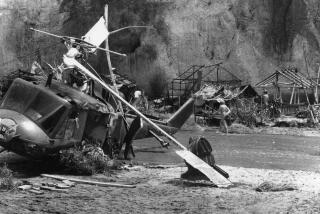- Share via
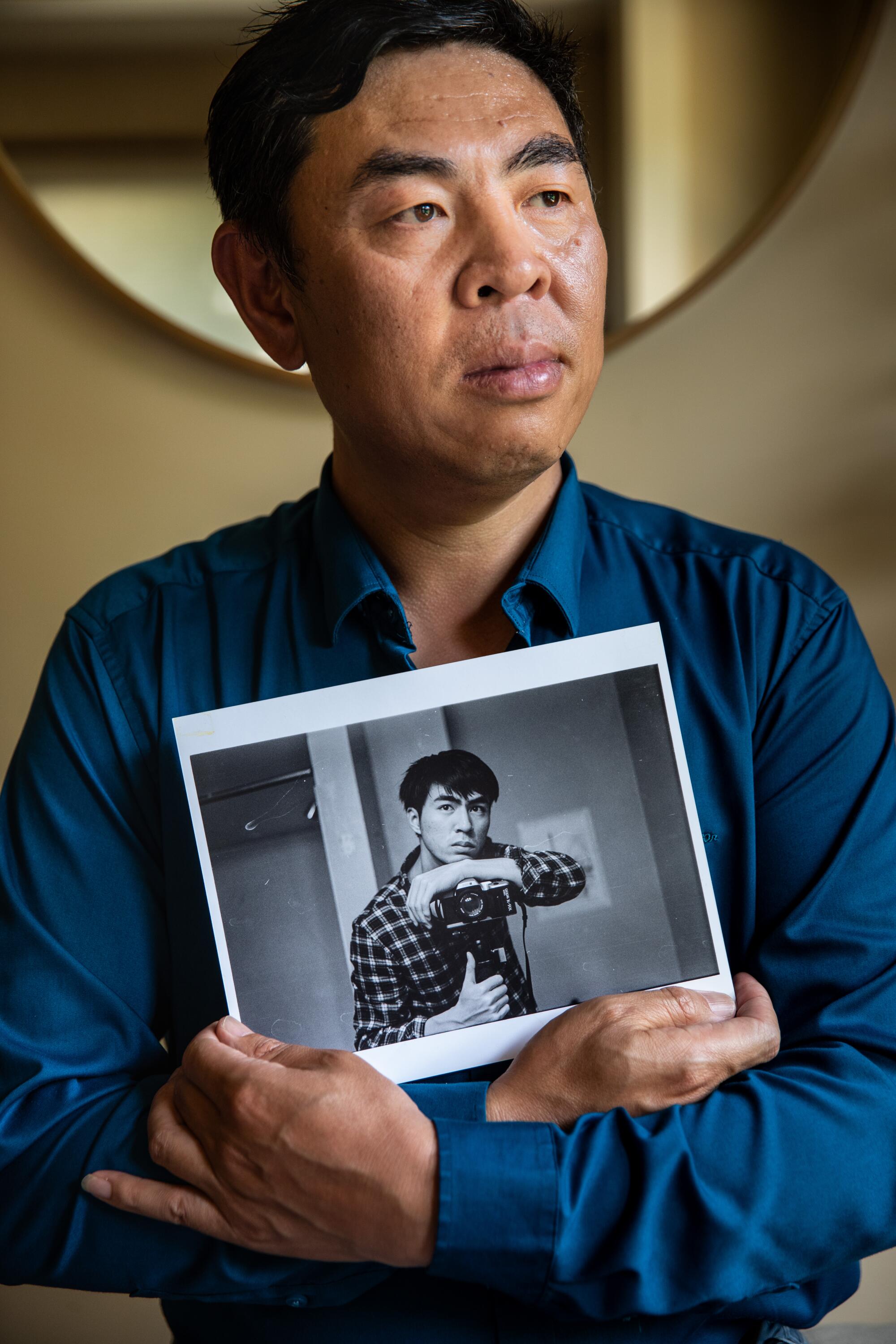
Moviemaking was 29-year-old cinematographer Peng Wang’s dream. He grew up in a small town in northern Sichuan province, where his family ran a small convenience store and scrimped and saved everything to support their son’s filmmaking career.
Wang, who went by the first name Aaron on the Orange County campus of Chapman University’s film school, was cautious and generous, his father told The Times in an interview.
So when he got a call one early April morning saying that his son had died in an accident on a USC student film shoot out on the Imperial Sand Dunes, he was stunned.
“In life, there is no greater pain than this type of bereavement,” Hualun Wang said, speaking from guest housing Chapman University provided to him. “After our son is gone, we have to endure all the hurt, all the societal pressure and the pressure to take care of ourselves when we get old.”
More than a month since Peng Wang’s death, two of California’s biggest film schools, their students and the family of the young and popular filmmaker are still grappling with the tragedy. Friends and students held three memorials for the cinematographer, whose death was a stark reminder of the dangers of the film industry. Crews have been fighting for safer conditions on film sets for decades, a struggle that was reignited by the death of another cinematographer, Halyna Hutchins, on the set of the movie “Rust” last year.
“As a filmmaker, God only knows where he would have gone, but I have a feeling that he would have made a difference,” said Johnny E. Jensen, an Emmy-nominated cinematographer and a professor at Chapman’s Dodge College of Film and Media Arts.
He spoke at the three memorials for Wang, including one attended by 200 classmates, friends and colleagues at Chapman University.
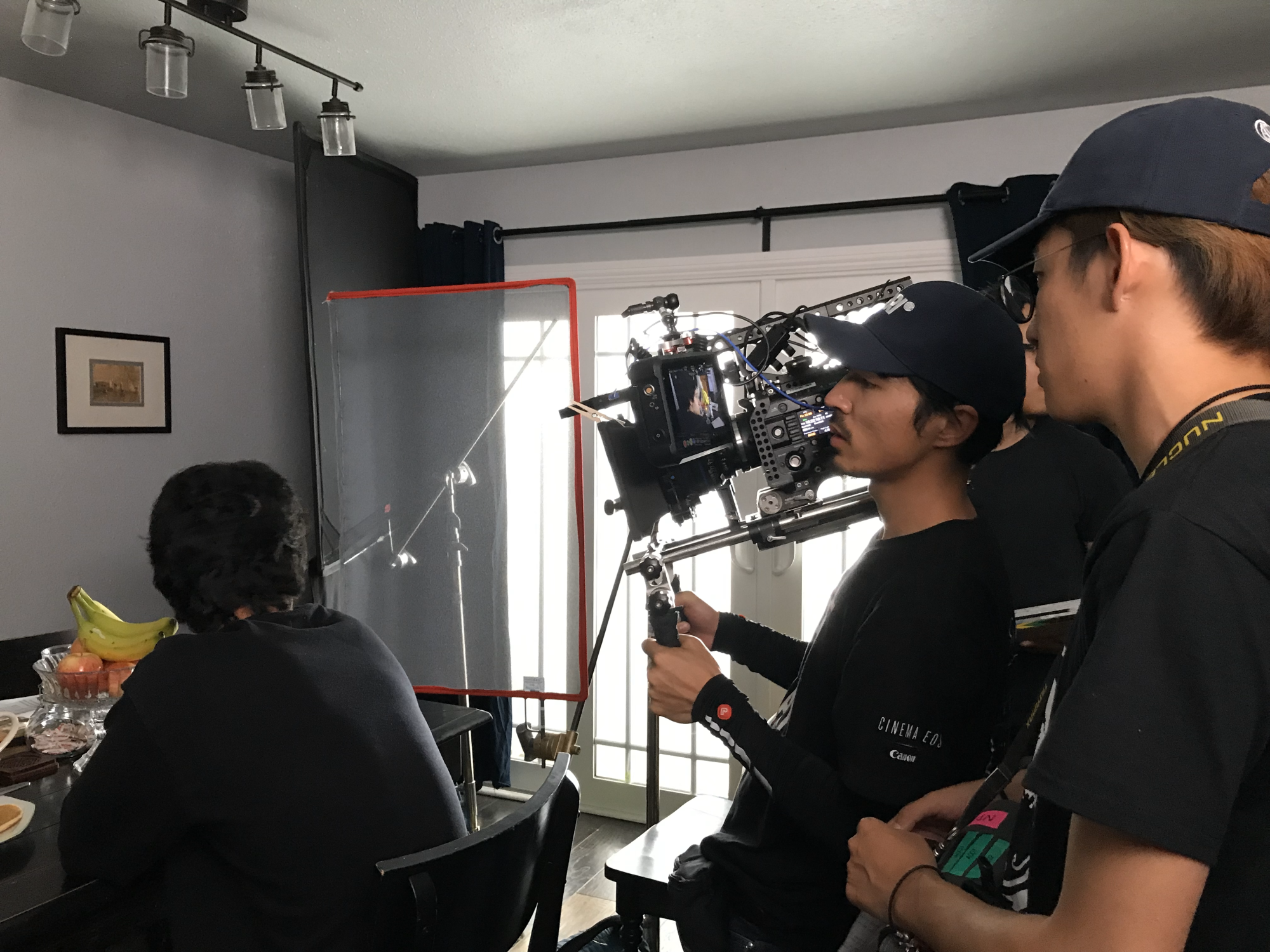
“He was so much of a philosopher and a beautiful human being,” Jensen said, his voice quavering. “He wanted to help poor people in China. He had grand ideas of how we could all live better, together.”
Growing up in China, Wang’s family had to make sacrifices to support his cinematic aspirations. They rented a home in a larger, more expensive city so he could attend a better school, his father said. To afford Peng’s tuition and living costs abroad, they had to sell a home they owned, Hualun Wang said via an interpreter.
“It was his dream,” Wang, 48, said of his son’s passion for the movies and dream of studying film. “As Chinese parents, if your child has a dream, you work hard to make the dream a reality.”
Wang’s parents divorced when he was a teenager.
He studied mathematics at Changchun University of Science and Technology but soon found his real passion was making small student films. Later, he went to stay with a relative near Beijing University so he could work with student filmmakers there.
Around 2015, he left China for the U.S., earning a film studies degree from the University of Minnesota. He then went on to Chapman’s graduate program in Orange.
During his three years at Chapman, Wang took a year out to start his professional career in China and started to win awards recognition. A short film he worked on, a supernatural tale called “Daemon,” received honorable mention in the best drama category at the Los Angeles Film Awards in 2020.
He had all but completed his studies at Chapman when he died, so Chapman awarded his Master of Fine Arts posthumously.
After he graduated, Wang had hoped to return to China to help independent filmmakers there. His father said that he traveled to Africa to make public service films and also to underdeveloped areas in China to teach.
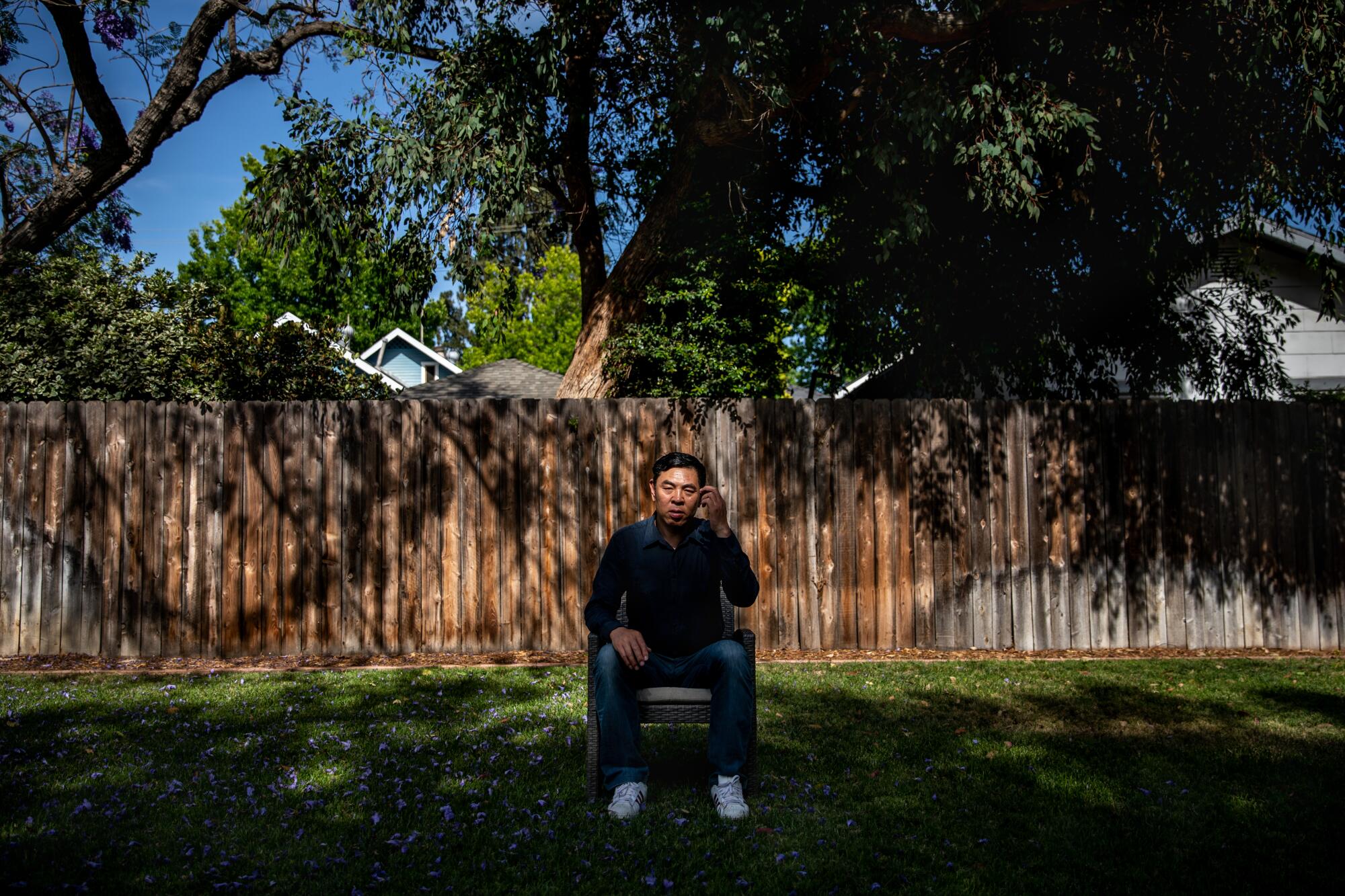
“He wanted to use movies to express that the world needs love and compassion,” Wang said.
In late April, the third-year Chapman graduate student had been helping a group of USC film school students complete a directing course project. It was common for the diaspora of Chinese film students to help each other out on film course projects, sharing details of their features and casting on the Chinese instant messaging platform WeChat. This was a short film called “Finale,” about a man who journeys to his death in the desert.
Peng Wang was traveling in the back of an off-road vehicle, traversing Imperial County’s sand dunes with three other filmmakers, when the vehicle rolled over. California Highway Patrol said Wang died at the scene after being partially ejected from the vehicle. He was wearing a helmet but not a safety harness, the public information officer said. Authorities are investigating the accident, and no autopsy has been released.
USC said students from its prestigious film school appeared to have flouted its safety policies and procedures in carrying out the shoot in the Imperial Sand Dunes Recreation Area, a remote expanse of desert three hours and more than 230 miles from its campus.
Without translators, Hualun said he hasn’t been able to speak with police and has not been in touch with USC or the students who were in the vehicle with Wang.
The suggestion that he was not wearing a seatbelt struck his father as odd.
“[Peng was] a very cautious person,” Wang said. “He was in the habit of wearing his seatbelt.”
He was also frustrated at the response to his son’s death, believing that more should have been done to prevent such an accident.
“This is a prestigious university with 100 years of history totally failing to take responsibility. [Peng] was a Chapman student. He didn’t know the USC rules. After a month, no organization has taken responsibility.”
In an emailed statement Monday, USC extended its “deepest sympathy” to Wang’s family.
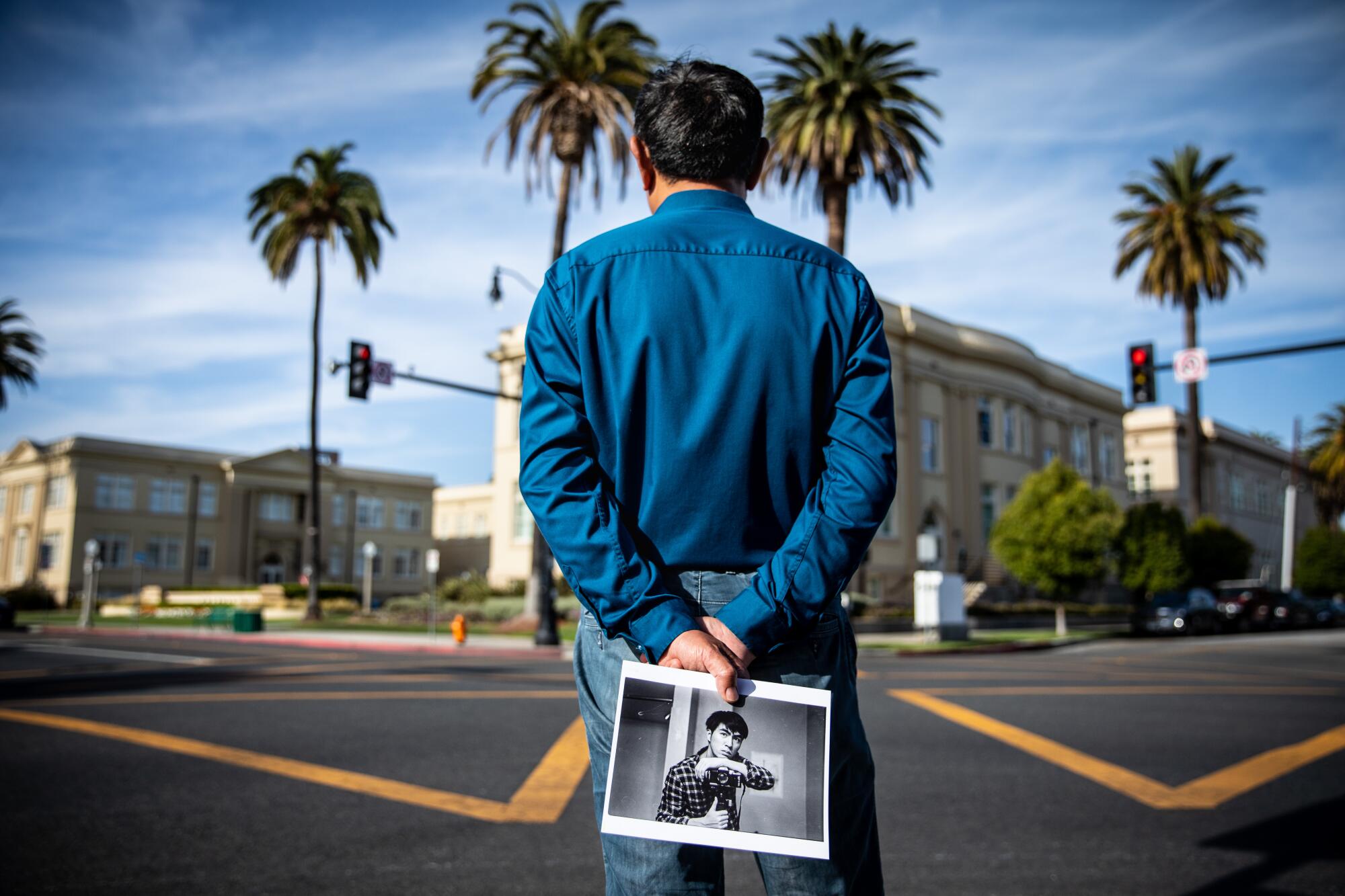
“Mr. Wang’s death was a horrible tragedy and an unfortunate reminder of the importance of following safety protocols during the filmmaking process. The USC School of Cinematic Arts has comprehensive safety protocols and requirements, developed over many decades, that all of our students are expected and trained to follow. Unfortunately, the School is unable to effectively monitor and ensure safety when these well-established protocols are disregarded. The School’s commitment to safety has been and remains uncompromising.”
Chapman noted in a statement that the film shoot was not one of its own productions, adding that the school’s own safety protocols are extensive.
“Peng was a talented and beloved member of the Dodge School of Film and Media Arts community. His loss was a loss to our entire Chapman Family, and he will be greatly missed,” said Cerise Valenzuela Metzger, a spokesperson for Chapman University.
Late last month, the Asian World Film Festival held a film retrospective in Westwood, showing a series of the cinematographer’s works.
Still, for Wang’s family, the situation remains painful.
Hualun Wang said he was in his third year of being unemployed, having previously worked selling health and nutrition products. Peng Wang’s mother works in a factory to help support the family, which includes a maternal grandmother with cancer and an uncle who struggles with mental illness, Wang said.
He said he wasn’t aware of the risks of working in film.
“There could be more tragedies like this,” Wang said. “We Chinese families are not willing to see this.”
Times assistant editor Cindy Chang contributed to this report.
More to Read
Inside the business of entertainment
The Wide Shot brings you news, analysis and insights on everything from streaming wars to production — and what it all means for the future.
You may occasionally receive promotional content from the Los Angeles Times.

